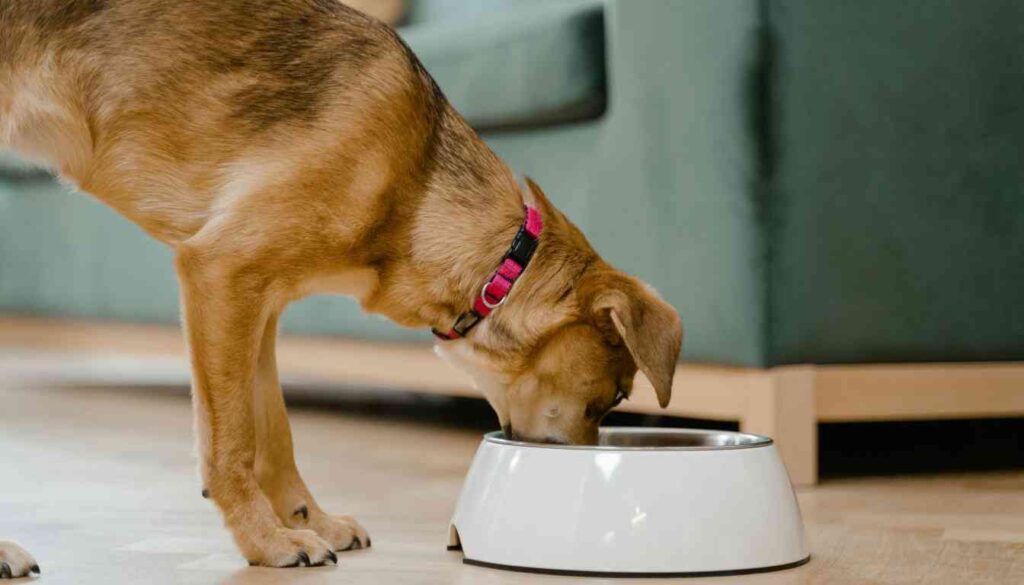If you own a dog, you’re likely familiar with kennel cough. This highly contagious respiratory illness can affect dogs of all ages and breeds. Caused by a combination of bacteria and viruses, including Bordetella bronchiseptica, it’s also known as infectious tracheobronchitis or canine infectious respiratory disease. After conducting extensive research and drawing from my personal experience with my dog, I’ve discovered some effective solutions. Here are some home remedies for kennel cough, let’s dive in!
Symptoms of kennel cough include a persistent cough, sneezing, runny nose, and fever. It’s spread through contact with infected dogs, and can also be transmitted through the air. If you suspect your dog has kennel cough, it’s important to isolate them from other dogs and seek veterinary care. While antibiotics may be prescribed to prevent secondary infections, several home remedies can help soothe your dog’s cough and alleviate their symptoms.
In this article, I’ll be sharing some of the most effective home remedies for kennel cough. These remedies include natural ingredients and methods that can help ease your dog’s discomfort and speed up their recovery. It’s important to note that while these remedies can be helpful, they should not replace veterinary care. If your dog is showing symptoms of kennel cough, be sure to consult with your vet before trying any home remedies.
Understanding Kennel Cough – Home Remedies for Kennel Cough
Kennel cough, also known as infectious tracheobronchitis, is a highly contagious respiratory disease that affects dogs. It is caused by a combination of viruses and bacteria, including the parainfluenza virus, the canine adenovirus, and the bacterium Bordetella bronchiseptica.
How Dogs Contract It
Dogs can contract kennel cough through direct contact with infected dogs or airborne droplets. Places where dogs congregate, such as dog parks, boarding kennels, and daycare facilities, are common areas where dogs can contract kennel cough. Dogs can also contract the disease by coming into contact with dust or other irritants that inflame the respiratory tract.
Symptoms – Home Remedies for Kennel Cough
The most common symptoms of kennel cough include a hacking or honking cough, which may be accompanied by sneezing and nasal discharge. Other symptoms may include fever, runny nose, loss of appetite, lethargy, and exercise intolerance. In severe cases, kennel cough can lead to pneumonia.
Diagnosis and Treatment
Diagnosis of kennel cough is usually made based on the dog’s clinical signs and physical exam. Your veterinarian may also recommend additional diagnostic tests, such as blood work or chest X-rays, to rule out other possible causes of respiratory symptoms.
Treatment options for kennel cough depend on the severity of the disease. Mild cases may resolve on their own, while more severe cases may require medical attention. Antibiotics may be prescribed to treat secondary infections, while cough suppressants may be used to alleviate coughing. Oxygen therapy may also be necessary in severe cases.
Prevention of kennel cough is possible through vaccination. The vaccine for kennel cough is available in both oral and injectable forms and is often given as part of a routine vaccination schedule. Vaccination is especially important for dogs that are at high risk of contracting kennel coughs, such as those that frequent dog parks or boarding facilities.
Kennel cough is a highly contagious respiratory disease that affects dogs. It is caused by a combination of viruses and bacteria and can be contracted through direct contact or airborne droplets. Symptoms include a hacking or honking cough, fever, runny nose, loss of appetite, and lethargy. Treatment options depend on the severity of the disease and may include antibiotics, cough suppressants, and oxygen therapy. Prevention is possible through vaccination.
Natural Remedies for Kennel Cough
As a pet owner, it can be distressing to see your furry friend suffering from kennel cough. While it is always best to consult with a veterinarian for proper diagnosis and treatment, some natural remedies can help alleviate the symptoms of kennel cough and boost your dog’s immune system.
Probiotics
Probiotics are live bacteria and yeasts that are beneficial for your dog’s gut health and immune system. They can be found in yogurt, kefir, and other fermented foods. Adding probiotics to your dog’s diet can help prevent kennel cough and other respiratory infections.
Honey – Home Remedies for Kennel Cough
Raw honey is a natural antibacterial and antiviral agent that can help soothe your dog’s throat and reduce coughing. It is also rich in antioxidants that boost the immune system. You can add a teaspoon of raw honey to your dog’s food or mix it with warm water to make a soothing drink.
Coconut Oil
Coconut oil is a natural anti-inflammatory and antibacterial agent that can help reduce inflammation in the respiratory tract and fight off infections. It is also rich in medium-chain fatty acids that boost the immune system. You can add a teaspoon of coconut oil to your dog’s food or apply it topically to the nose and throat.
Cinnamon
Cinnamon is a natural anti-inflammatory and antibacterial agent that can help reduce inflammation in the respiratory tract and fight off infections. It is also rich in antioxidants that boost the immune system. You can add a pinch of cinnamon to your dog’s food or mix it with honey to make a soothing drink.
Natural remedies such as probiotics, honey, coconut oil, and cinnamon can help alleviate the symptoms of kennel cough and boost your dog’s immune system. However, it is always best to consult with a veterinarian for proper diagnosis and treatment.
Home Remedies to Soothe Kennel Cough Symptoms

As a pet owner, seeing your furry friend suffer from kennel cough can be distressing. While it is always best to consult with a veterinarian for proper diagnosis and treatment, some home remedies can help soothe your dog’s cough and alleviate their discomfort.
Steam
Steam is a great natural remedy for kennel cough as it helps to open up bronchial passages and keep them moist. You can create a steam room for your dog by running a hot shower and sitting with them in the bathroom for 10-15 minutes. Alternatively, you can use a humidifier to create a moist environment in your home. However, it is important to note that this method should not be used for flat-faced dogs like pugs or bulldogs as it can worsen their cough and be dangerous.
Aromatherapy
Certain essential oils like peppermint and eucalyptus can help to soothe your dog’s cough and alleviate their discomfort. You can add a few drops of essential oil to a diffuser or spray bottle and let your dog inhale the scent. However, it is important to use caution when using essential oils around pets as some oils can be toxic to dogs.
Chicken Soup
Chicken soup is not only a comforting food for humans but can also help to soothe your dog’s cough. The warm liquid can help to ease their throat and provide some relief. However, it is important to make sure the soup is free from any ingredients that may be harmful to your dog.
Rest
Rest is essential for your dog’s recovery from kennel cough. Make sure they have a comfortable and quiet place to rest and avoid any strenuous activities that may exacerbate their cough. You can also consider using a harness instead of a collar to reduce any pressure on their throat.
While these home remedies can help alleviate your dog’s cough and discomfort, it is important to remember that they are not a substitute for proper veterinary care. If your dog’s symptoms persist or worsen, it is important to seek medical attention from a veterinarian.
Prevention and When to See a Vet
Use of Harness
When it comes to preventing kennel cough, the use of a harness rather than a collar is highly recommended. Collars can put pressure on a dog’s trachea, which can lead to irritation and coughing. Using a harness can help distribute the pressure more evenly and reduce the risk of coughing.
What Not to Use
It’s important to avoid exposing your dog to cigarette smoke, as it can irritate their respiratory system and increase the risk of kennel cough. Additionally, it’s best to avoid using a collar on your dog, as mentioned before, and to avoid crowded and poorly ventilated areas such as dog parks.
Importance of Prevention
Prevention is key when it comes to kennel cough. Vaccinations, such as the Bordetella vaccine, can help prevent your dog from contracting the illness. It’s important to keep your dog up to date on their vaccinations, especially if they are frequently exposed to other dogs or visit places such as boarding facilities or dog parks.
When to Seek Professional Help
If your dog is experiencing symptoms of kennel cough, such as coughing or sneezing, it’s important to seek medical attention from a veterinarian. They can determine the best course of treatment, which may include antibiotics or other medications. In some cases, kennel cough can lead to more serious conditions such as pneumonia, especially in young puppies or dogs with weakened immune systems, so it’s important to seek medical attention as soon as possible.
Overall, prevention is key when it comes to kennel cough. Using a harness instead of a collar, avoiding cigarette smoke and crowded areas, and keeping your dog up to date on their vaccinations can all help reduce the risk of your dog contracting the illness. If your dog does show symptoms of kennel cough, seek medical attention from a veterinarian as soon as possible to ensure prompt and effective treatment.
Before You Go – Home Remedies for Kennel Cough

Kennel cough can be a pesky ailment for dogs and their owners. However, there are several home remedies that can help alleviate the symptoms and speed up recovery.
Some of the most effective kennel cough remedies include:
- Honey and coconut oil mixture: Honey has antibacterial properties, while coconut oil is anti-inflammatory. Mixing the two can help soothe the throat and reduce coughing.
- Steam therapy: Steam can help open up the airways and relieve congestion. You can give your dog a steam bath by running a hot shower and letting them sit in the bathroom for 10-15 minutes.
- Vitamin C: Vitamin C is a natural immune booster and can help fight off infections. You can give your dog vitamin C supplements or feed them fruits and vegetables that are high in vitamin C, such as oranges, strawberries, and broccoli.
- Chicken broth: Chicken broth is a great source of hydration and can help soothe the throat. You can make your chicken broth at home by boiling chicken bones and vegetables in water.
It’s important to note that while home remedies can be effective, they should not replace veterinary care. If your dog’s symptoms persist or worsen, it’s important to seek medical attention from a veterinarian.
By following these home remedies and seeking appropriate medical care, you can help your furry friend recover from kennel cough and get back to their happy, healthy self.
References – Home Remedies for Kennel Cough
Little Herb Encyclopedia, by Jack Ritchason; N.D., Woodland Publishing Incorporated, 1995
The Ultimate Healing System, Course Manual, Copyright 1985, Don Lepore
Planetary Herbology, Michael Tierra, C.A., N.D., Lotus Press, 1988
Handbook of Medicinal Herbs, by James A. Duke, Pub. CRP Second Edition 2007
The Complete Medicinal Herbal, by Penelope Ody, Published by Dorling Kindersley
Home Remedies for Kennel Cough and theherbprof.com: A Perfect Blend
Home Remedies for Kennel Cough and theherbprof.com are like two herbs in a healing tea, each enhancing the other’s potency. Let’s steep ourselves in this herbal synergy!
Our Home Page at theherbprof.com is the heart of our herbal universe. It’s where we share our passion for herbs, their benefits, and how to use them. But what makes our heart beat? It’s our Home Remedies for Kennel Cough section!
Check the Following Articles!
The High-Quality Brand You Need To Know: Herb Pharm
Herbal and Supplements: A Comprehensive Guide
Home Remedies for Gingivitis: Prevent Gum Disease Now!
Frequently Asked Questions – Home Remedies for Kennel Cough
1. What are the stages of kennel cough in dogs?
Kennel cough is a respiratory disease that affects dogs of all ages and breeds. The disease has three stages – the incubation period, the onset of symptoms, and the recovery period. The incubation period lasts from 2 to 14 days, during which the dog is infected but does not show any symptoms. The onset of symptoms is characterized by a dry, hacking cough, retching, and gagging. The recovery period is when the symptoms start to subside, and the dog begins to feel better.
2. What are the symptoms of kennel cough in dogs?
The symptoms of kennel cough in dogs include a dry, hacking cough, retching, and gagging. The cough may be accompanied by a runny nose, sneezing, and watery eyes. The dog may also be lethargic, lose its appetite, and have a low-grade fever. In severe cases, the dog may develop pneumonia, which can be life-threatening.
3. How can I treat my dog’s kennel cough at home?
Several home remedies can help alleviate the symptoms of kennel cough in dogs. These include humidifying the air, using a harness instead of a collar, giving your dog honey, and using a nebulizer. You can also give your dog over-the-counter cough suppressants, but only after consulting with your veterinarian.
4. What can I feed my dog with kennel cough?
When your dog has kennel cough, it’s essential to keep them hydrated and nourished. You can feed your dog with bland, easily digestible food, such as boiled chicken, rice, and vegetables. Avoid giving them fatty or spicy foods that can irritate their throat.
5. What human medicine can I give my dog for coughing?
You should never give your dog human medicine without consulting with your veterinarian first. Some human medicines can be toxic to dogs, and the dosage and frequency of administration can be different. Your veterinarian may prescribe cough suppressants or antibiotics to treat your dog’s kennel cough.
6. Can Humans Get Kennel Cough?
Ah, the question lingers like a dog’s nose at the dinner table: can humans get kennel cough? The answer is yes, but fret not! This canine cough, primarily a pesky plague for our furry friends, is rarely a concern for us humans. While the notorious Bordetella bronchiseptica can occasionally make a pit stop in our respiratory systems, it’s more like a fleeting visit from an annoying relative rather than a permanent houseguest. Symptoms may include a lingering cough or sore throat, but for most, it’s just a minor inconvenience—like stepping in a puddle when you’re wearing your favorite shoes. So, keep your immune system robust with herbal allies like echinacea and elderberry, wash those hands after petting a pup, and rest easy knowing that while kennel cough can knock at our doors, it’s usually just a gentle tap rather than a full-blown invasion!
